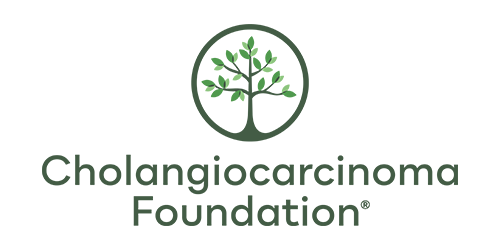Clinical Trials > Targeted Therapy
Learn more about Targeted Therapies.
It is not the intention of the Cholangiocarcinoma Foundation to provide specific medical advice. We provide website users with information to help them better understand their health conditions and the current approaches related to prevention, diagnosis, treatment and supportive care. You are urged to always seek the advice of your physician or other qualified healthcare provider.
Now Enrolling
To test the effectiveness & safety of Zanidatamab (JZP598) with standard of care against standard of care alone as a first line treatment for Biliary Tract Cancer (including ICC, ECC, and gallbladder cancer) that contain extra HER2 protein on cancer cells. Patients must have HER2, advanced (unresectable) or metastatic biliary tract cancer.
Read MoreThis is a randomized study to compare the effectiveness of tinengotinib against standard of care chemotherapy in patients who have received prior chemotherapy and one prior FGFR inhibitor (third line of treatment). Tinengotinib is an FGFR inhibitor, which is taken orally once a day. The control arm will be chemotherapy chosen by your physician.
Read MoreThis is a first in human study in patients with advanced or metastatic solid tumors known to have an MTAP deletion. The first part of the study is an open-label dose escalation and the second part is an open label dose expansion in specific MTAP-deleted tumor types. The study drug, TNG462, is a selective PRMT5 inhibitor administered orally.
Read MoreStudy Name Safety and Tolerability of TNG908 in Patients with MTAP-deleted Solid Tumors ClinicalTrials.gov Identifier (if applicable) NCT05275478 Clinical Trial Category (check all that apply) Beyond First Line Therapy Targeted Therapy Study Center Institution Name NEXT Oncology Institution Address 2829 Babcock Road City San Antonio State Texas Zip Code 78229 Country United States List additional…
Read MoreThis is an open-label, multicenter, phase II basket study of ulixertinib in combination with hydroxychloroquine in patients with advanced gastrointestinal malignancies harboring MAPK pathway mutations. The trial will have five baskets based on disease primary: cholangiocarcinoma, pancreatic, colorectal, esophageal, and gastric adenocarcinomas.
Read MoreThis study is open to adults with advanced cancer in the biliary tract or pancreas in which an amplification of MDM2 and absence of mutations in TP53 have been identified in your tumor comprehensive genomic profile.
Read MoreThis is an open label study in adults with advanced tumors who have FGFR2 and/or FGFR3 mutations. Participants receive daily medicine by mouth of KIN-3248 (study drug) with periodic study visits (ranging from weekly at the beginning of the trial to monthly) to have laboratory testing, imaging assessments and safety exams such as ECG, physical exam
Read MoreThe study drug, ENV-101, acts on a protein in the body that is thought to be involved with the
growth of these abnormal cells caused by a mutation of a gene, PTCH1. By blocking this
process, ENV-101 may slow the progress of the disease or you may have a partial or complete
response.
To investigate the efficacy and safety of zanidatamab in combination with standard first line chemotherapy regimens in gastrointestinal cancers, including biliary tract cancer (BTC) such as intrahepatic cholangiocarcinoma, extrahepatic cholangiocarcinoma, and gallbladder cancer.
Read MoreStudy Name Safety and Tolerability of TNG908 in Patients with MTAP-deleted Solid Tumors ClinicalTrials.gov Identifier (if applicable) NCT05275478 Clinical Trial Category (check all that apply) Beyond First Line Therapy Targeted Therapy Study Center Institution Name NEXT Oncology Institution Address 2829 Babcock Road City San Antonio State Texas Zip…
Read More